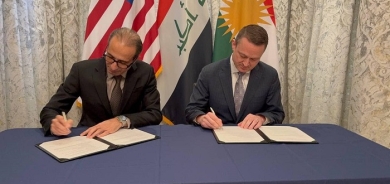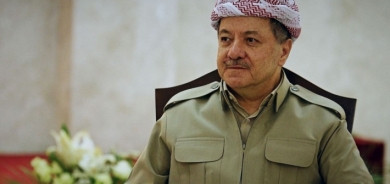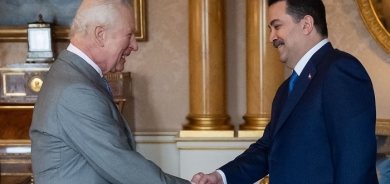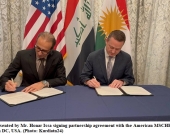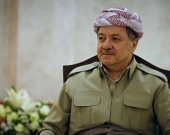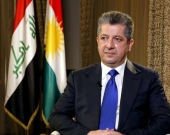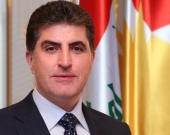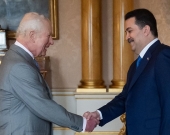Syria peace hopes fade after rebels' talks with West

The two sides seemed to be talking past each other.
The diplomatic dance around the Syrian National Coalition tour just confirmed that President Bashar al-Assad and his rebel opponents are nowhere near ready to thrash out a peace deal, according to diplomats and experts.
New coalition leader Ahmad Jarba met with French President Francois Hollande, US Secretary of State John Kerry and the divided UN Security Council in a week in which the war stakes grew horrifyingly worse.
UN officials said the death toll from more than 28-months of conflict passed 100,000, tens of thousands joined nearly 1.8 million refugees outside Syria, and overspill tensions worsened in Lebanon and Iraq.
Jarba and rebel military chief General Selim Idriss called on the French president to supply arms. Jarba made the same demand to Kerry in New York, and called on the Security Council to increase "pressure" on Assad.
"Until the regime has been forced to accept a political solution, we must have the means to protect ourselves and defend civilians," Jarba said after the New York meeting. A refusal would mean thousands more would be "executed."
Kerry and UN leader Ban Ki-moon stressed the need however for new efforts to get the two sides to a conference to discuss a transitional government that the United States and Russia say they want to hold in Geneva.
Both said there can be "no military solution" to the conflict where the death toll has overtaken the 1992-95 Bosnia war, and the refugee flood is closing to beating the exodus from the Rwanda genocide in 1994.
But the United States, France and Britain are all considering arming the rebels, while the UN's Syria peace envoy Lakhdar Brahim admitted this week that "it is extremely difficult to bring together those who have been killing each other for two years."
Andrew Tabler, a Syria expert at the Washington Institute for Near East Policy, said the talk of a peace conference hid "overt" and "covert" policies by western nations.
"Overtly we do not provide lethal assistance," said Tabler. "But covertly we do and that is currently being considered."
"We are going through the motions on the Geneva stuff because officially our policy is to support Geneva, but nobody thinks that it will work any time soon," he said.
The divided opposition has not agreed who would attend any conference, and there are still major questions over the terms for involvement by Assad's government.
The Syrian coalition says talks must be based on a transition in which Assad is kept out of the picture. Diplomats say Assad would never agree to being pushed aside.
Assad's forces have claimed a number of battlefield victories with their Lebanese Hezbollah militia allies, and doubts about the opposition have been raised because of the divisions and fears over extremist elements.
Burhan Ghalioun, a senior national coalition member who took part in the talks with Hollande and Kerry, said the tour has boosted the image of the opposition.
"With this tour we are making a comeback and the international community now understands the gravity of the situation," he told AFP.
Before the international community "was afraid of the risks" of deeper involvement. "Now they know that if they don't intervene there are multiple risks."
Ghalioun said it was wrong to believe that the opposition is against a peace conference and only wants Western arms.
"The opposition is for a political solution on the condition that it is an opportunity to bring real results," he said.
He also said the coalition wants the international community and United Nations to give assurances that a conference will lead to a transition "and not sterile negotiations that go nowhere and that allow the Syrian regime to continue killing."
AFP


